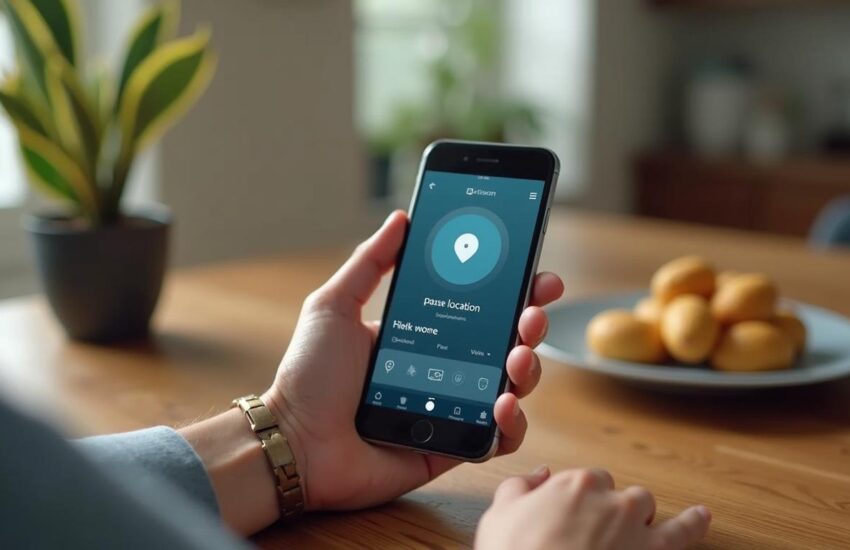Life360 Lawsuit
Life360 faces a class action lawsuit over claims that they shared users’ sensitive data without consent. Reports suggest the company shared users’ geolocation data, movement patterns, and detailed driving behavior analyzes with third parties. Companies like Allstate used this data to make profits. This affected more than 45 million people through mobile applications that include Life360.
Life360’s class action lawsuit revolves around the company’s collection and sharing of users’ specific information. This includes location, GPS time, acceleration, braking, and overall driving patterns. The lawsuit also claims Life360’s Tile tracking device has design flaws that make stalking possible. Users have openly discussed using the device for stalking purposes. This piece offers key information about eligibility requirements and joining options for the life360 class action lawsuit 2025 proceedings. The following sections will walk you through the sign-up process step by step if you want to join the lawsuit.
Contents
What is the Life360 class action lawsuit about?
A class action lawsuit against Life360 challenges the company’s unauthorized data sharing practices. Legal complaints show that Life360 sold exact location data from millions of users to about a dozen data brokers. The company targeted children and families without proper disclosure or consent, which violated state and federal consumer laws.
The company’s financial records paint a concerning picture. Life360’s revenue from user data sales jumped from $693,000 in 2016 to $16 million by 2020. This represented almost 20% of their total revenue that year. The shared data contained precise location coordinates, movement patterns, and detailed driving behavior. Users’ acceleration, speed, and specific route details were also included in these data sets.
The company’s data protection measures raised serious concerns. Life360 claimed to remove identifying details, but former employees revealed that the company didn’t take proper steps to protect location histories from being traced back to users.
The lawsuit explains major privacy issues. The sold data could identify users who visited sensitive places like religious institutions, medical facilities, domestic abuse shelters, or LGBTQ+ establishments. Life360 marketed itself as a “family safety app,” but the litigation argues that these practices ended up putting user privacy at risk instead of protecting it.
Who qualifies for the Life360 class action lawsuit 2025?
The Life360 class action lawsuit welcomes users whose data was collected and sold without proper consent. The lawsuit aims to represent “all persons in the United States whose data, including but not limited to their geolocation data, was sold by Defendant without their consent”.
Florida residents whose information was compromised can join a special subclass in the litigation. Life360’s records and other sources suggest this affects “hundreds of thousands of consumers”.
Your usage timeline plays a significant role in qualifying for compensation. Users who accessed the Life360 app in the last two years might be eligible to claim compensation. Some states have stronger legal standing than others. Users living in California, New York, Virginia, or Colorado could receive up to $500 in compensation.
A separate lawsuit focuses on Life360’s Tile tracking devices. This case represents three groups: people tracked without consent, those who risk being tracked, and residents from 35 specific states who were tracked without permission.
Parents should know that a Florida minor has already stepped forward as lead plaintiff. This sets a precedent for young users affected by these alleged privacy violations.
Life360 Lawsuit Claim
The Life360 lawsuit process is different from what you might expect in regular legal cases. Class actions don’t usually need immediate action from potential class members, unlike individual lawsuits.
You are automatically included as class members in most class action lawsuits without needing to “sign up” right away. These lawsuits work on an “opt-out” basis, which means affected users are included automatically unless they specifically ask to be excluded.
Here’s how it works:
- Original filing: Lead plaintiffs and attorneys start the lawsuit
- Class certification: Court decides if the case moves forward as a class action
- Settlement or verdict: Most class members need to take action at this point
When the Life360 class action lawsuit 2025 reaches a settlement, eligible users must submit a claim form before the settlement deadline. Your compensation could be higher if you have proof of Life360 usage.
You can opt out of mandatory arbitration if you have concerns about Life360’s recent terms update. Send an email to arbitrationoptout@life360.com within 30 days after agreeing to the terms. Your notice should include your name, contact details, and a statement that you want to opt out.
The Labaton law firm’s website has the latest updates about the case status.
Conclusion
Life360 faces a major lawsuit that challenges its data sharing practices. The legal battle centers on claims that the company sold exact location data from millions of users to data brokers without proper consent. These users were mostly families and children. The company’s revenue from data sales grew dramatically between 2016 and 2020, which shows the money behind these alleged practices.
The lawsuit covers users who had their location data collected and sold without their knowledge. Anyone who used the app in the last two years can qualify. Users from California, New York, Virginia, or Colorado might get up to $500 because these states have stronger privacy laws. Note that children affected by these privacy violations can also join as class members.
Most users don’t need to do anything right now to join the lawsuit. These lawsuits work on an “opt-out” basis – you’re included unless you choose not to be. A settlement might come up later, and that’s when eligible users will need to fill out a claim form by the deadline. Users worried about recent updates can avoid mandatory arbitration by emailing Life360 within 30 days of agreeing to terms.
This lawsuit’s impact goes beyond Life360. Privacy concerns now affect almost everyone who uses apps. The case shows that even apps that claim to protect families might end up putting user privacy at risk. Users must watch how companies collect, use, and share their personal information. This becomes even more crucial when it comes to sensitive location data that could reveal private details about their daily lives.



